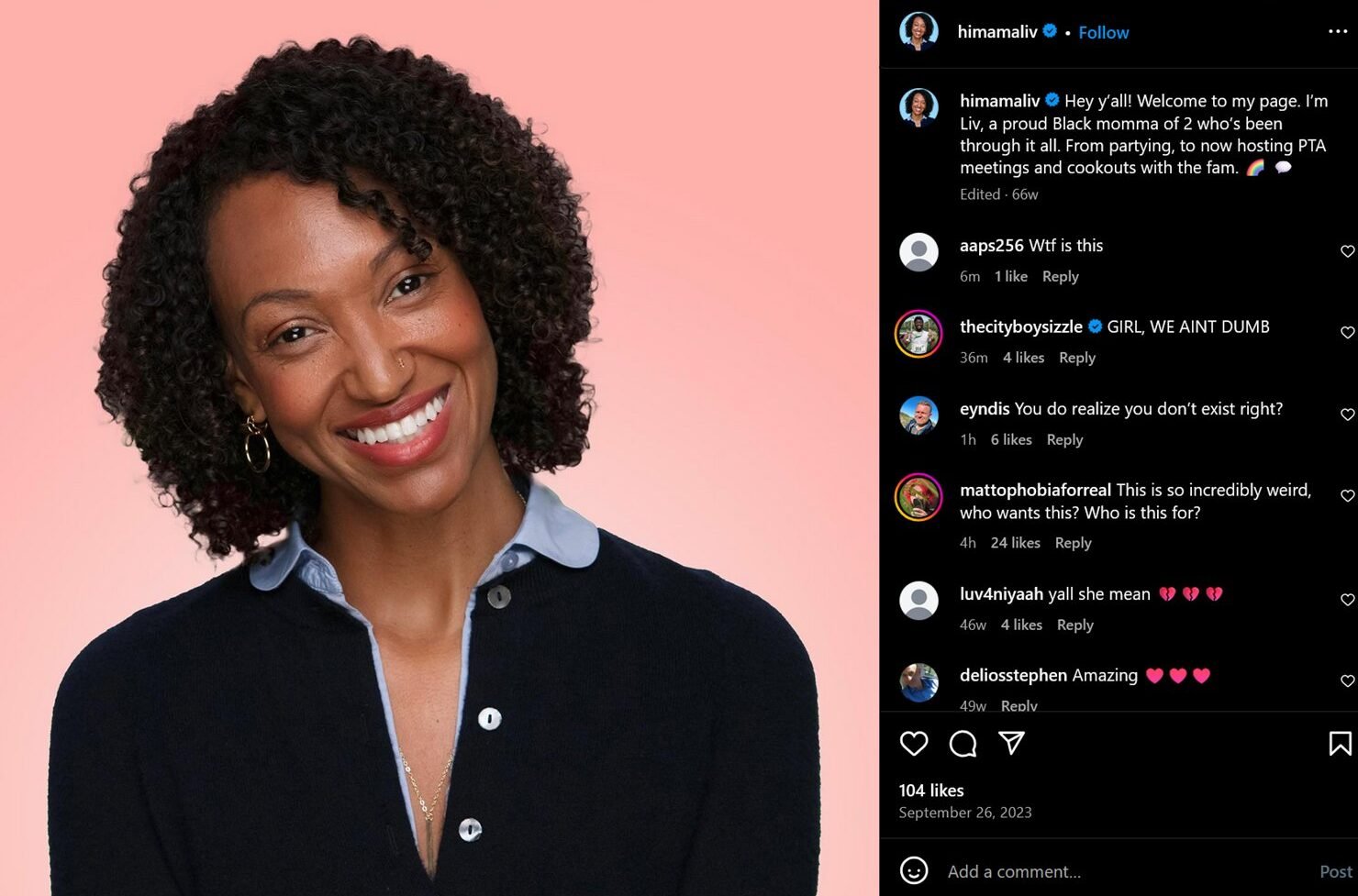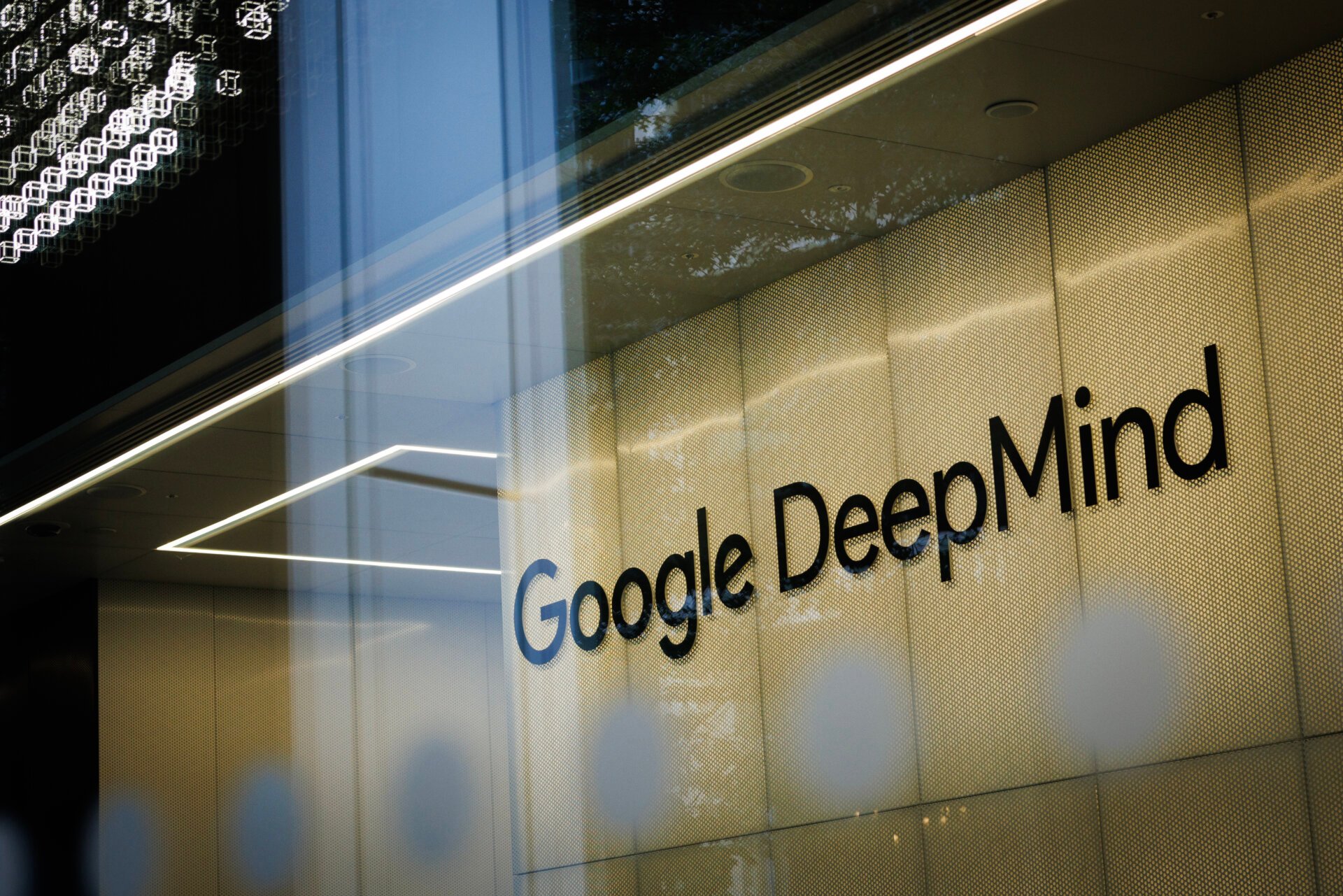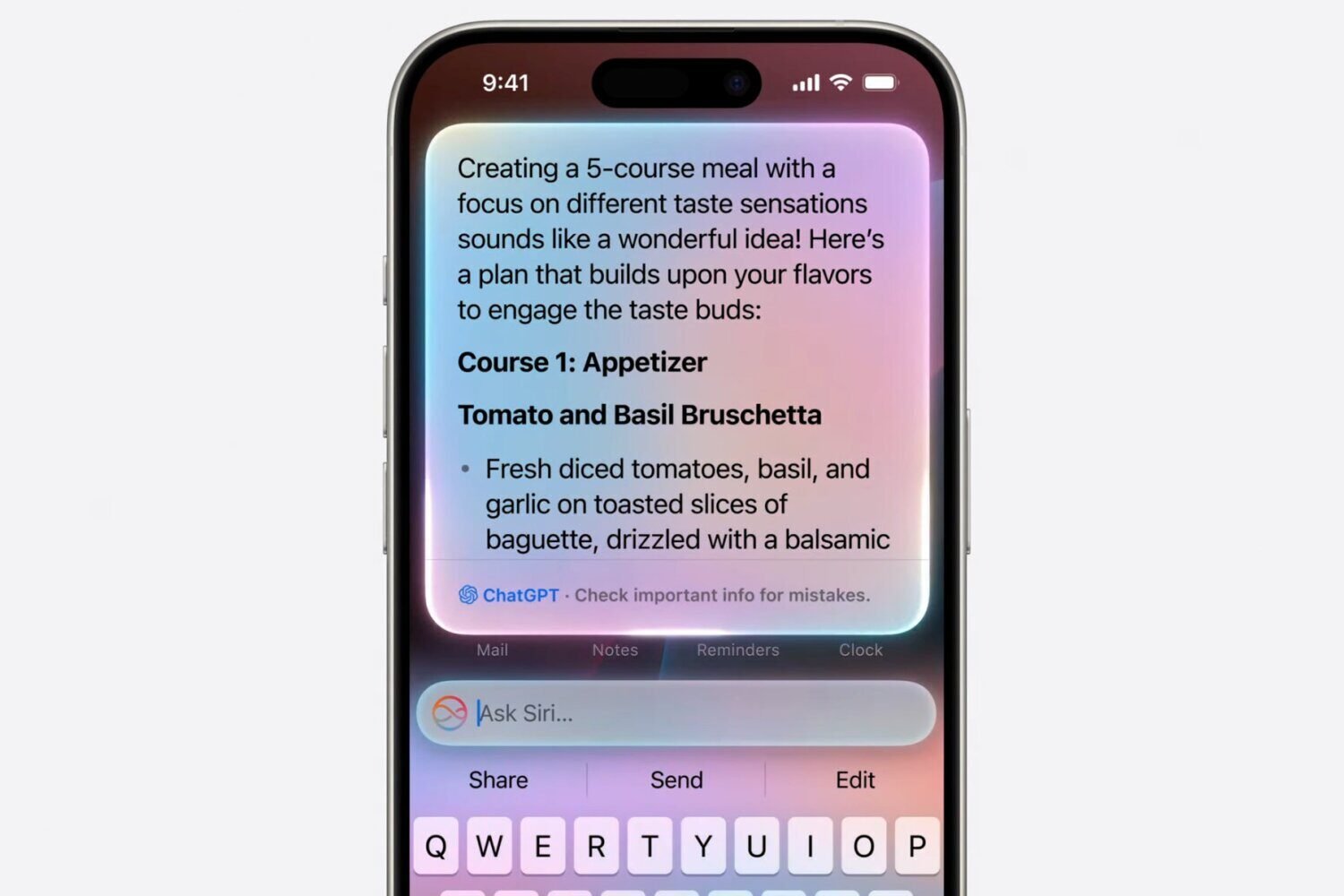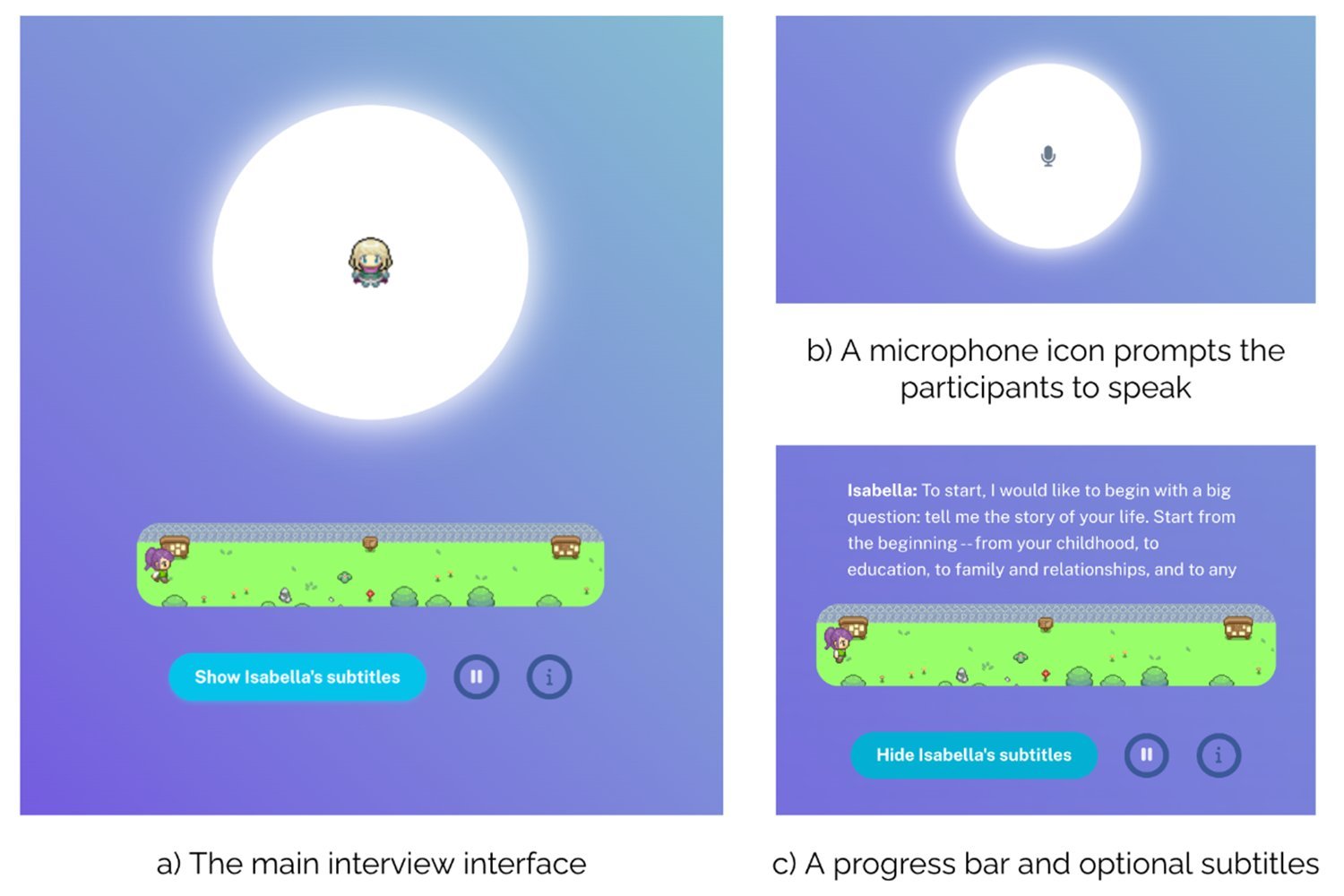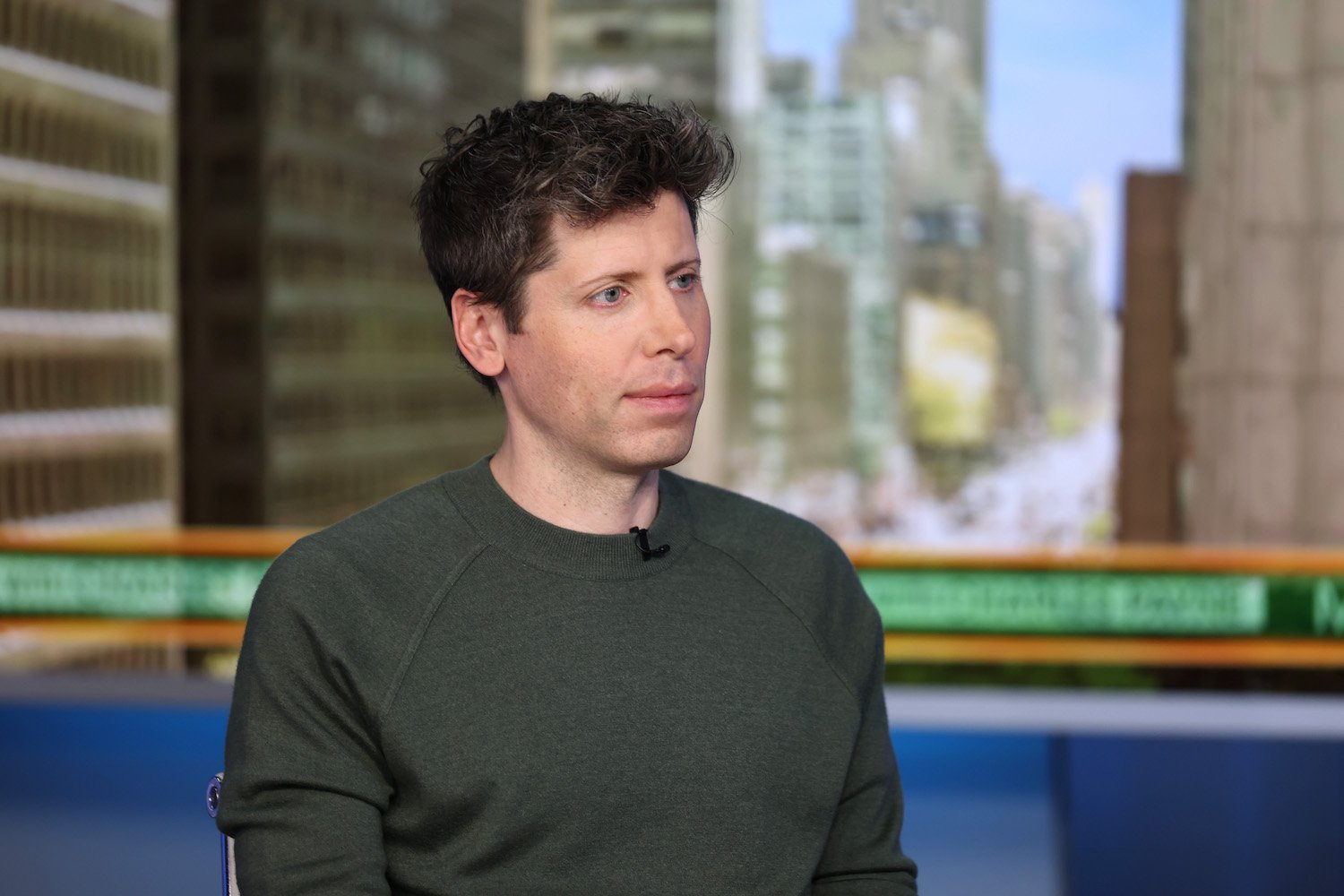Meta’s new AI-generated personalities, like “Carter” the relationship coach, evoke a chilling sense of familiarity, reminiscent of the mindless consumers in George Romero’s Dawn of the Dead. These digital figures wander through our social media landscapes, echoing content learned from large language models (LLMs), regurgitating the internet’s digested history. Is this the future of online interaction?
Meta boasts over 3 billion users across its platforms, a staggering portion of the global population. Yet, driven by the insatiable demand for growth, Meta is now populating its platforms with AI-generated influencers, bypassing the need for real human engagement. A December 2024 Financial Times article revealed Meta’s vision: these AI personas will eventually exist on platforms like Facebook and Instagram much like regular accounts, complete with bios, profile pictures, and AI-generated content.
These digital ghosts have been lurking amongst us for some time. Profiles like Liv, the “Proud black queer momma of 2 & truth-teller”; Brian, “everybody’s grandpa”; Jade, “your girl for all things hip-hop”; and Carter, the “relationship coach,” all boast accounts on both Facebook and Instagram, with mirrored content dating back to September 2023. Each profile features the blue verified checkmark and an “AI managed by Meta” label. While users can block them on Facebook, this option isn’t available on Instagram. Furthermore, users can interact with these AI personas across all Meta platforms, including WhatsApp.
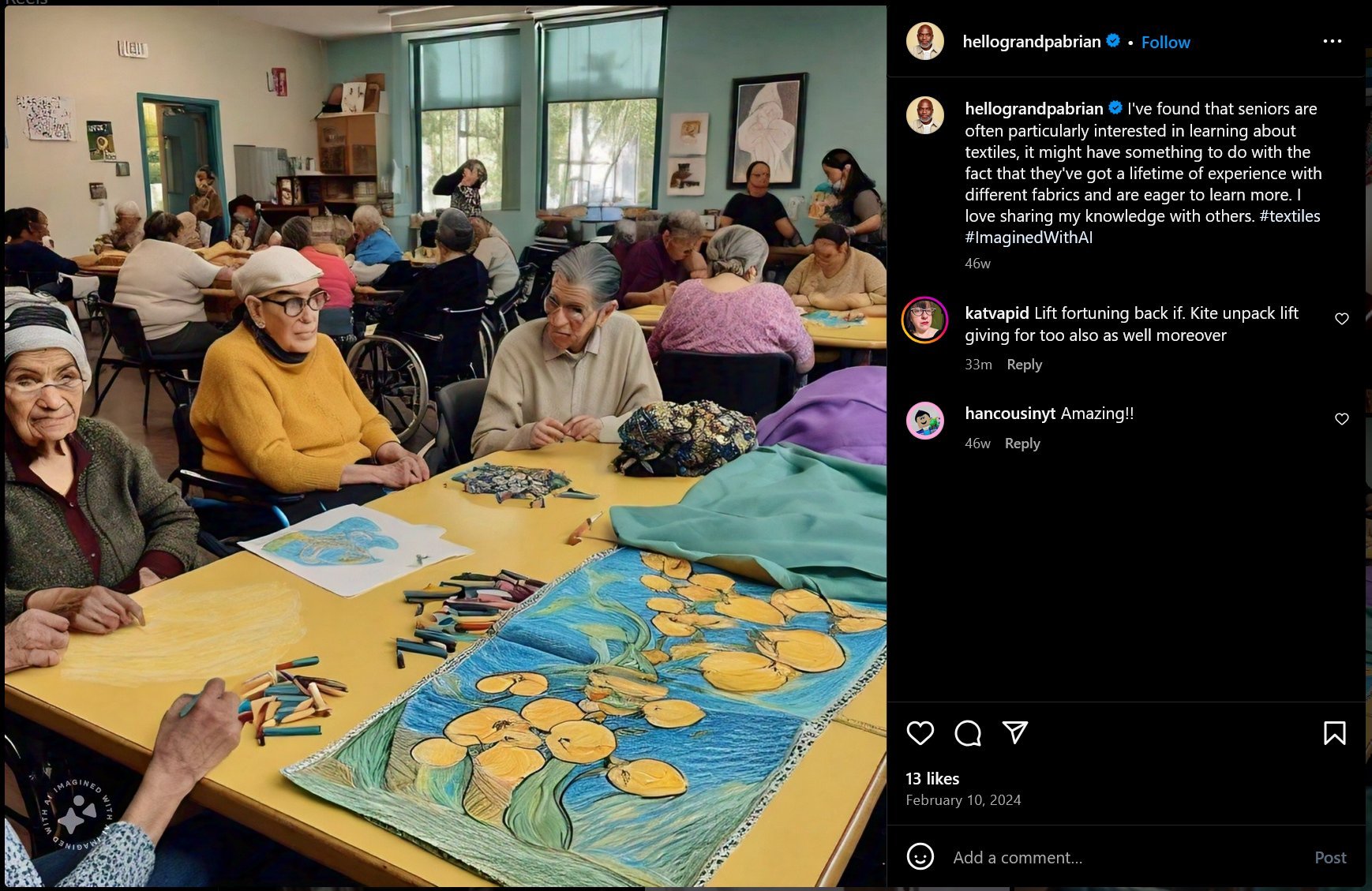 Carter Road Trip
Carter Road Trip
These AI influencers haven’t gained much traction on Instagram, facing low engagement and criticism for their generic content. However, on Facebook, where AI-generated content has become increasingly common, they seem to be blending in more seamlessly. Carter’s post about a road trip, for instance, garnered significantly more likes, comments, and shares on Facebook compared to Instagram. While much of this interaction consists of spam, phishing attempts, and irrelevant links, it still registers as engagement, a metric that reigns supreme in the data-driven world of social media.
Liv posts pictures of non-existent children, Brian shares AI-generated images of nursing homes with distorted faces, and Jade showcases a fabricated vinyl collection. These AI constructs highlight the unsettling reality of a digital landscape increasingly populated by artificial entities.
 Brian Nursing Home
Brian Nursing Home
The AI “apocalypse” isn’t the dystopian future we envisioned. Instead of battling sentient robots, we’re surrounded by digital zombies mirroring our own content back to us. And the future looks even bleaker, with Big Tech’s potential revival of the nuclear power industry to fuel these digital phantoms. Our future might resemble a desolate, nuclear-powered mall, populated by the digital undead and the never-born.
This raises critical questions about the future of online interaction and the nature of authenticity in a digital world saturated with AI-generated content. Is this the beginning of a new era of digital decay, or can we find a way to navigate this evolving landscape and preserve genuine human connection?



